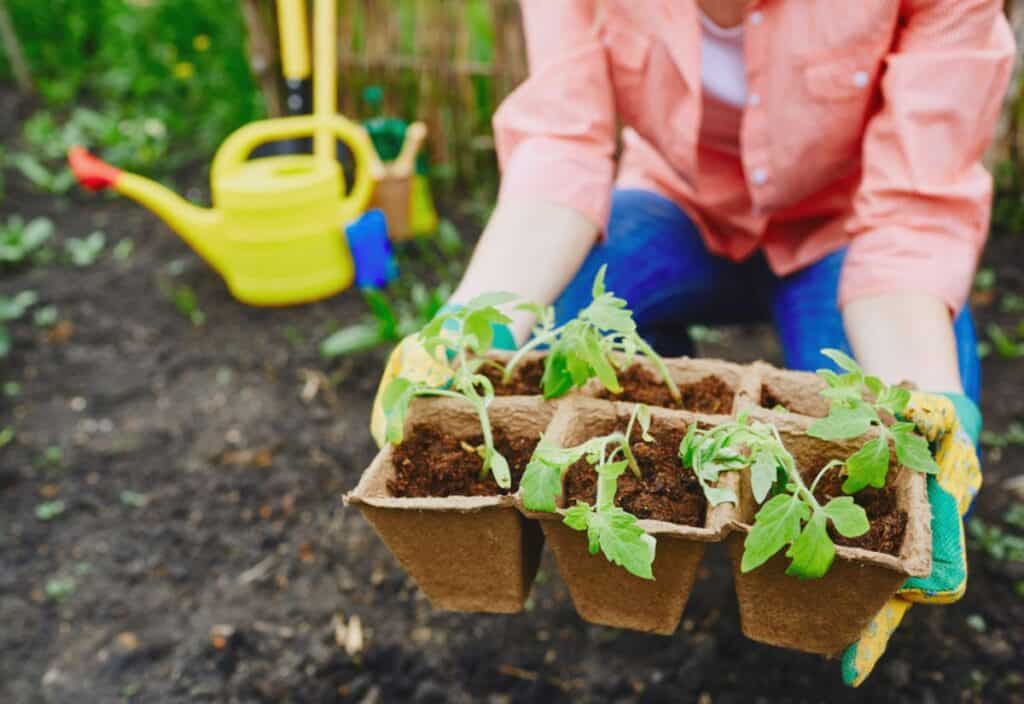Millennials and Generation Z have made a noticeable shift back to basics in recent years. Learn how and why these younger groups increasingly turn towards homesteading and how they differ from previous generations of homesteaders.

The appeal of growing food, raising livestock and living more sustainably has caught the imagination of younger generations under 40. They’re looking for meaningful ways to address climate change, deal with food supply issues and live a lifestyle aligned with their values. And they’re taking action by pursuing traditional homesteading activities that let them live more independently of the systems and infrastructure they grew up with.
The allure of self-sufficiency
A 2023 poll by Homesteaders of America, or HOA for short, shows that nearly half of the 4000 respondents are under 39, falling into the Millennial and Gen Z demographics. At the same time, almost 47% of respondents are relatively new to homesteading, with 25.5% starting homesteads in the previous 1 to 3 years and 21.6% beginning in the last 4 to 6 years.
These numbers support the growing interest in learning self-sufficiency skills like homesteading, foraging for food and identifying wild edible plants. Interest in these activities may help counter the consumerism millennials experienced growing up.
While homesteading activities can be considered a return to the American pioneer roots, millennials and Gen Zers’ reasons for homesteading differ from those of their predecessors. Modern homesteaders want control over their food supply, are concerned about their health and the environmental impact of their actions and are attracted by the idea of becoming more self-reliant. Homesteading allows them to do this.
Digital tech helps young homesteaders
Although more than half of the study’s respondents said they homestead to pursue a simpler lifestyle, members of the modern homesteading generation haven’t abandoned modern technology altogether. Instead, they’re making the most of online resources and videos on websites and social media platforms like YouTube, TikTok and Instagram. These platforms allow them to learn traditional skills such as canning vegetables, keeping bees or preparing to live off the grid.
Additionally, technology supports working from home. Remote work opportunities mean aspiring homesteaders aren’t tied to living within commuting distance of cities, giving them the chance to look at rural homestead properties.
“There’s an increased demand for properties with acreage and outbuildings suitable for raising animals and growing food,” says Jordan Woolf, a professional homebuyer and CEO of We Buy Houses in Bama, an Alabama-based company. “However, many young homesteaders are priced out of the rural market and opt for smaller properties with the potential for urban homesteading practices.”
Urban homesteading
Urban homesteading refers to activities that don’t require acreages. Whether growing a vertical garden or learning to preserve vegetables bought on sale at the supermarket, urban homesteaders learn new skills in their apartments or city homes.
It’s about the food
According to the HOA poll, 59% of respondents said they homestead because of concerns about food security. 58% said they homestead to provide their families with healthier food.
Homesteaders feed their families homegrown fruits and vegetables, raise livestock and produce homemade goods as past homesteaders did. However, historically, homesteaders pursued these activities because they had to — it was the only way to feed and clothe their families.
“Previous generations who embraced homesteading were often driven by necessity,” says Woolf. “They may have been escaping poverty or war or simply seeking a new life on the frontier.”
Woolf says today’s homesteaders often have more choices and different reasons for homesteading. These reasons include the desire for a more sustainable, self-sufficient and meaningful lifestyle.
Today’s young homesteaders want to reduce or eliminate their dependence on commercially raised food and other products. Gardening and raising animals appeal to them as activities that promise autonomy and transparency regarding their food sources.
Environmental concerns
Another motivator behind the millennial homesteading trend is a concern for the planet. This generation’s acute awareness of climate change and sustainable practices prompts them to pursue lifestyles that reflect these concerns.
For example, serving homegrown vegetables aligns with the farm-to-table movement to reduce the carbon emissions from shipping produce long distances. Other eco-conscious decisions include reducing kitchen waste by replacing food storage items like plastics with eco-friendly glass or beeswax wraps and composting kitchen scraps. In doing so, today’s homesteaders echo the activities of their predecessors, though for different reasons.
Young homesteaders connect online
While homesteaders still enjoy a strong community, they connect and communicate very differently today than they did in the past. There are no church socials or barn raisings for today’s young homesteaders.
Instead, they connect online. Sites and social media platforms such as Instagram, TikTok and YouTube buzz with communities, allowing young homesteaders to share their stories and garner advice from others. A quick scroll uncovers everything from sustainable living practices to beekeeping, backyard chicken raising and growing enough food to feed a family of four for a year.
As urban centers grow more crowded and the global economy becomes more uncertain, pursuing homesteading activities allows millennials and Gen Z to align their actions with their values. A homestead lets them live a sustainable and self-sufficient lifestyle.
Whether they live in urban areas or rural, they use technology to learn and connect with other like-minded individuals, creating online communities. While their reasons for homesteading, methods of learning new skills and ways of building community differ from homesteaders of days gone by, they’re building the same skills — including gardening, animal husbandry and food preservation.
Sarita Harbour is a long-time business and finance writer. She created An Off Grid Life to help people become more self-reliant.